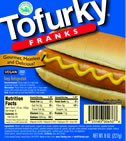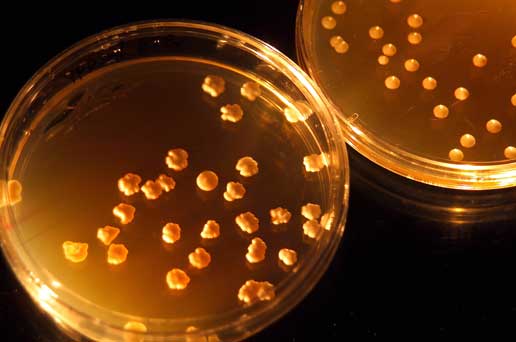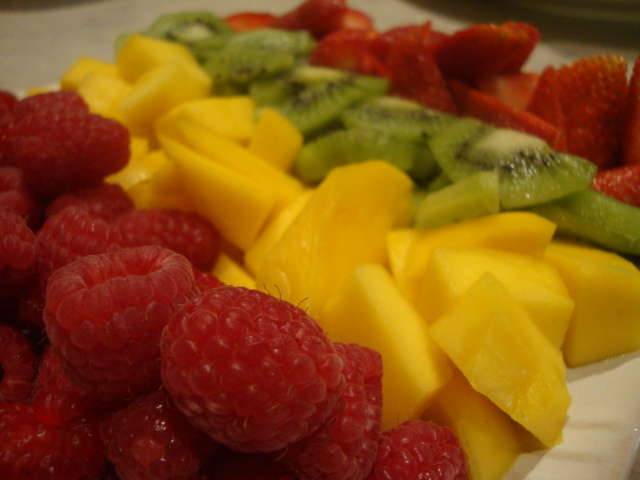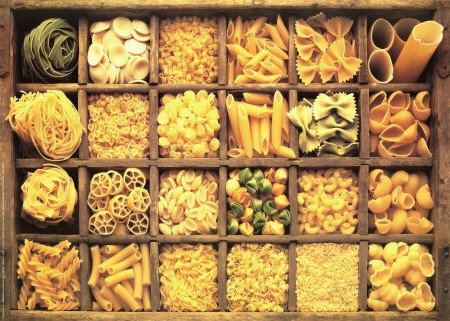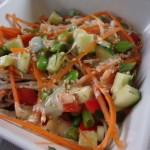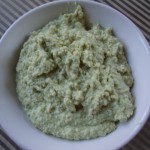Do You Think It’s Expensive To Go Veg?
I’m often asked (and it’s often implied) if going veg is more expensive and if cooking is more time consuming. With the costs of food going up and up, especially organic, you’d think it would be, but surprisingly, I have found that I don’t spend any more money than I did when we ate meat. Granted, there’s only three of us, minus the dog (he’s not big on tofu. He prefers Coronas):
I do find, however, that because I buy fresh food, I go to the store more often–no more just once a week trips for me, but since I live so close to several stores, I’m ok with it. So here’s what I attribute the low costs to:
Meat alternatives costs are comparable to the real deal. 14 ounces of tofu costs me roughly $1.99-2.50 and that feeds my family. Lunch “meats”, Boca Crumbles, tempeh and veggie burgers doesn’t cost me more than $5 to feed the three of us. My favorite, Field Roast, may be the exception at about $6.75-7 for a pound, but again, it’s enough for us.
I buy fruits and veggies that are in season and on sale. I’ve also just joined a Community Supported Agriculture (CSA) which comes from an organic farm and for what I’d spend in a month on produce, I get three months with a CSA. Not only am I getting fresh, organic produce, I’m supporting a local farm.
I grow my own herbs. I’m no green thumb (the Husband is in charge of the houseplants) but when it comes to vegan cooking, I use a lot of herbs, especially cilantro, parsley and rosemary. So for about $1.99-2.50 a plant at Home Depot, I picked up my favorite herbs and planted them in pots. Voila!
Bulk up. All those bins in the health food store are actually big money savers. Since there is no need for that fancy packaging, we get a break at the register. Try buying pasta, quinoa, flours, nuts, etc. from the bulk bins and you’ll be surprised at how much you save. Same with spices. Many stores offer bulk spices and you can just buy what you need. (Why again, do I have a full jar of celery salt)?
Get used to leftovers and freeze what you don’t eat. I have a cupboard full of reusable containers and I love them. (I’m also in love with my label maker, but I refrain from labeling leftovers). I’ll make a big salad at the beginning of the week and munch on it all week. Or when I make my favorite Cashew Cheese sauce, I’ll freeze it into smaller containers, same with pesto, or bake some tofu slices for sandwiches. . .you name it.
Can you do the can-can? Buying beans in the can will save you a bundle as well and one can can supply enough protein for two meals. Gotta love that.
Be a coupon queen (or king). Yep, I clip and organize my coupons! Sign up for Mambo Sprouts, where they’ll send you coupons via snail mail or email for natural foods. Many stores also will double the coupon values, so look for those stores and/or certain days they offer that.
There are lots of ways to save money on vegan food—it just takes some planning. Once you get into the groove of things, you’ll start seeing a difference in your wallet.
So what do you think? Do you spend more to be vegan? What are your money-saving tips?
Source for some of the info: VegNews April 2010
Are Veggies Losing Their Mojo?
According to researchers, they are. Donald Davis, a PhD researcher with the Biochemical Institute at the University of Texas has determined that broccoli, for example, had 130 mg of calcium in 1950, but today, it only has 43 mg. Yikes!
The culprit? Apparently, it’s the farmer’s desire for bigger, faster-growing vegetables. They use synthetic fertilizers. The solution? Buy organic. I know, I know, organic can be pricey, so Prevention magazine (where the info is from) did a nice handy-dandy list of ways to still reap the benefits of veggies while buying the conventional ones.
Sleuth out strong colors. Look for bold and bright hued produce, like red leaf lettuce versus iceburg lettuce.
Pair your produce. Power in numbers, folks. Some veggies work better when paired with another. For instance, eating tomato-based salsa and avocado upped the body’s absorption of the tomato’s cancer-fighting lycopene.
Buy smaller items. Size matters (when it comes to veggies 😉 ) The smaller the fruit, the more concentrated the nutrients will be.
Pay attention to cooking methods. Certain veggies release more nutrients when cooked. Broccoli and carrots are more nutritious when steamed then when raw or boiled. Tomatoes release more lycopene when slightly sauteed or roasted.
Keep produce whole. Don’t buy bagged salads, carrots and other veggies. The peeling and cutting can sap nutrients. Even though it can be a time-sucker, you’ll be missing out on what you’re hoping to get from the vegetables in the first place!
Look for new colors. Try purple asparagus or cauliflower. Switch from green peppers to red, orange or yellow. In general, the more varied your diet, the more vitamins and minerals you’ll get.
Opt for old-timers. Heirloom varieties like Brandywine tomatoes, Early Jersey Wakefield cabbage, Golden Bantam corn, or Jenny Lind melon were bred before WWII and are naturally hardier because they have endured and thrived long before modern fertilizers and pesticides.
Find a farmers’ market. Every spring, I can’t wait to grab my reusable bags and head over to the different farmers’ markets. Stuff is in-season, usually organic and you support a local farmer! It’s a win-win.
Source: Prevention July 2010
We all love animals. Why do we call some “pets” and others “dinner?”
-K.D. Lang







